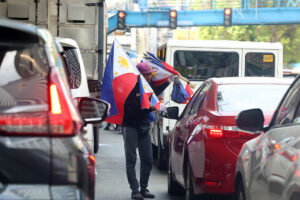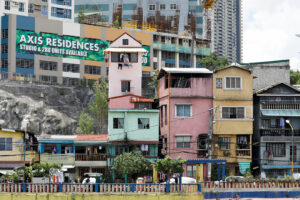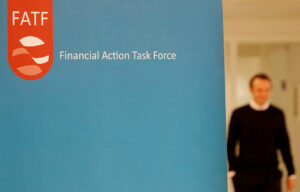Today’s commemoration of Independence Day will no doubt be the occasion of a recounting of our forebears’ valiant efforts to gain freedom at various points in our history.
There will be a retelling of the measures, big and small, that they took to assert our independence and champion the welfare of our fellowmen. They first went against colonizers, and then fellow Filipinos with vested interests, and, of late, social ills and other banes of modern life.
Indeed, we owe the freedoms we now enjoy — even take for granted — to the known and unknown heroes who stood up for their principles. They risked many things including their own lives.
But we know too well that independence is not an absolute, terminal state. Even though it has been achieved, there is no guarantee that it will not be threatened or cannot be lost again. Often, once the euphoria over its achievement subsides, the constant threats against that precious independence show themselves in ways that are either insidious or menacing. Thus, preserving independence is now a duty that belongs to the current generation who must do everything they can to protect it.
This resonates loud and clear today, given what the Philippines is facing in the West Philippine Sea. China, our giant neighbor to the West, has been unrelenting in its aggressive acts, making a mockery of international law and, in fact, basic decency, in the conduct of its affairs against us.
President Ferdinand Marcos, Jr. stated at the recent Shangri-La Dialogue in Singapore: “Our efforts stand in stark contrast to assertive actions that aim to propagate excessive and baseless claims through force, intimidation, and deception. In the West Philippine Sea, we are on the frontlines of efforts to assert the integrity of the UNCLOS (United Nations Convention on the Law of the Sea) as a Constitution of the Oceans. We have defined our territory and maritime zones in a manner befitting a responsible and law-abiding member of the international community.”
And indeed, our government has made an appropriate response given this threat to our sovereignty and territorial integrity. We have adopted the Comprehensive Archipelagic Defense Concept (CADC) that marks a shift in our defense strategy, from internal security to the enhancement of our external defense capabilities.
According to Defense Secretary Gilberto Teodoro, the shift is important because adopting this strategy is about “developing the country’s capability to protect and secure our entire territory and Exclusive Economic Zone (EEZ) in order to ensure that our people, and all the generations of Filipinos to come, shall freely reap and enjoy the bounties of the natural resources that are rightfully ours within our domain.”
At a recent forum organized by the Stratbase Institute, in cooperation with the Australian Embassy, Professor Renato De Castro, Trustee and Program Convenor, also talked about the CADC. He said that its long-term goal is to guarantee the unimpeded and peaceful exploration and exploitation of all the natural resources within the country’s EEZ for Philippine nationals, corporations, and others authorized by the Philippine government.
The events taking place in the West Philippine Sea affect both maritime security and economic security, two concepts that cannot be separated from each other because they are intimately linked. It is an issue of maritime security because the locality involved falls right within the Philippines’ exclusive zone. It is thus crystal clear that China is intruding into Philippine space that has been established and affirmed by our 2016 victory before the Permanent Court of Arbitration.
At the same time, economic security is also being threatened. Just recently, China declared a unilateral fishing ban in the South China Sea, which includes the West Philippine Sea. The ban is supposed to last four months, from May 1 to Sept. 16. This seriously affects Filipinos who directly source their livelihood from the resources within our EEZ. These waters serve as fishing grounds that feed the families of Filipinos in coastal areas every day. Further, the West Philippine Sea holds a big promise for energy security because it is believed to contain natural gas and oil reserves, which can power the economy. And then, scientists have found substantial damage to our coral reefs and other marine resources. Lastly, as a maritime route, the West Philippine Sea facilitates trade and commerce not only for the Philippines but for the entire area.
Economic security is a cornerstone of well-being, providing people with some degree of predictability to plan and invest in their future and that of their children, according to the United Nations. In this sense, such threats to Philippine sovereignty and economy are a major cause for alarm, because they compromise not only the present but the future, and not only of the marine environment but the people as well.
It is here that our collaboration with like-minded countries becomes crucial. The Philippines cannot achieve an apt response to such threats alone. Enhanced cooperation with nations who share our values, such as Australia, is crucial. These partnerships are strategically necessary, especially in times when important tenets of international law like sovereignty and territorial integrity are being blatantly disregarded.
Acting Deputy Ambassador Johanna Stratton of the Australian Embassy in the Philippines highlighted this as well. During the forum, she said “the Philippines knows more than most that adherence to UNCLOS is fundamental to a secure and stable maritime domain. It provides a comprehensive legal framework for all activities in the oceans and seas.”
As we celebrate Independence Day today, may we remember that freedom and independence are not just vague concepts or big words. They have actual tangible expressions. True freedom means having the right to fully utilize resources that are rightfully ours.
Maritime and economic security, and the elimination of threats to our independence, are ongoing struggles that only get more complex and complicated every day. This is a challenge that we must not give up on.
Victor Andres “Dindo” C. Manhit is the president of the Stratbase ADR Institute.





